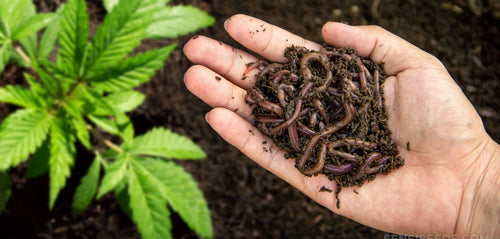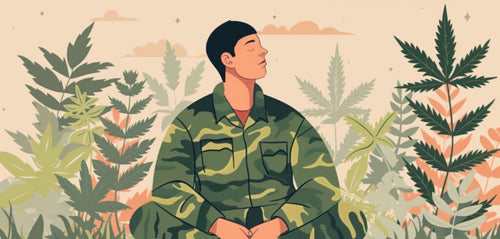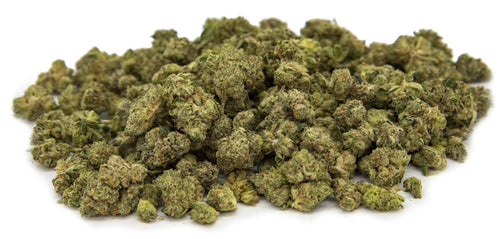#108: Dry January: A Fresh Start for Your Mind and Body
#108: Dry January: A Fresh Start for Your Mind and Body
Another year has come and gone, and with it, countless celebrations, parties, and gatherings. If your liver could talk, it might be begging for a break from the fun and festivities. That's where Dry January comes in. This movement, which involves abstaining from alcohol for the entire month of January, has gained significant popularity in recent years.
What started as a public health campaign in the UK by the charity Alcohol Change UK, has now turned into a global challenge to start off the new year on a healthier note. But why is Dry January gaining so much traction, and what benefits can you expect from participating? The answers may surprise you.
The evolution of a sober revolution

The origins of a sober January can be traced back to 1942 in Finland, where it was first introduced as a wartime initiative to save resources and prevent alcohol dependency. However, the modern-day Dry January movement was started by Emily Robinson in 2013 through Alcohol Change UK.
In 2011, while Robinson was preparing for a half-marathon she noticed significant personal benefits like improved sleep, weight loss, and increased energy when she abstained from alcohol. The following year, she decided to join the Alcohol Change UK and transformed her personal experience into a formal campaign.
Alcohol consumption is a significant issue in the United Kingdom (UK), with 57% of adults in England drinking up to 14 units each week, and 24% drinking more than 14 units. Significant? Yes. Problematic? Absolutely. Alcohol misuse is associated with various health problems, including liver disease, heart disease, and mental health issues. The UK is just one example, but alcohol consumption and misuse are global problems.
The first official Dry January campaign was launched in 2013, with over 4,000 participants. Since then, the movement has grown exponentially, with millions of people worldwide participating each year. Resonating with the idea of "New Year, New Me", Dry January has become a popular way for people to start off the new year on a positive and healthy note.
What happens when you drink

Renowned neuroscientist, podcast host, and associate professor at Stanford, Dr. Andrew Huberman, has spoken at length about the harm that alcohol can cause. Here's the podcast episode where he talks about the science of alcohol: The Huberman Lab Podcast.
"Probably the best amount of alcohol to drink would be zero glasses per week, or ounces per week," Dr. Huberman says in the podcast. He goes on to explain that alcohol consumption can disrupt our sleep patterns, reduce the quality of our REM sleep, and increase stress hormones in our bodies.
In addition to the immediate effects that alcohol has on our bodies, it can also have long-term consequences. "Alcohol decreases cortical thickness, destroys good, healthy gut microbiota, affects DNA methylation, increases estrogen levels, and may even cause cancer," Dr. Huberman adds.
But why do we continue to drink alcohol, even when we know it's harmful? Alcohol activates the brain's reward system, releasing dopamine and other neurotransmitters that create pleasurable feelings. This chemical response reinforces drinking behaviour, as the brain seeks to repeat the experience. So how can we break this cycle and make a positive change for our health?
Cannabis as a sober ally
For those looking to cut out alcohol, cannabis can be a promising alternative. When compared to alcohol, cannabis has much less potential for harm. There's no risk of a fatal overdose, has less of an impact on chronic health conditions, and hangovers are less severe.

"When you drink alcohol, it can pass into all the cells and tissues of your body. It has no trouble just passing right into those cells… The fact that it can pass into so many organs and cells so easily is really what explains its damaging effects," explains Dr. Huberman.
Cannabidiol (CBD), on the other hand, can significantly lower alcohol cravings. It does this by regulating the body's endocannabinoid system, which is responsible for regulating mood, memory, and pain perception. CBD also has anxiolytic effects, reducing feelings of anxiety and stress that may trigger alcohol cravings.
Both alcohol and cannabis affect the brain's reward system but in different ways. While alcohol affects endorphins and leads to a stronger psychological dependency, cannabis affects dopamine levels in a different way - by activating the brain's CB1 receptors in the endocannabinoid system. Similar to a runner's high, this activation creates a more mild psychological dependency, making it easier to break the cycle of addiction.
Cannabis isn't without its own risks - it carries a risk for addiction (7% vs. 15% for alcohol), can affect the developing brain in adolescents, and can have negative effects on respiratory health, sleep, and cognition. However, when used responsibly and in moderation, cannabis is a safer alternative to alcohol.
Cannabis options to explore
Are you ready to make your January a "dry" one? Or maybe you just want to cut back on your alcohol consumption? Either way, cannabis offers a variety of options to explore. Here are some ideas:
CBD tinctures: Curb your alcohol cravings with a few drops of CBD tincture under your tongue. Add to seltzer water for a non-alcoholic "mocktail."
Pre-rolls: Rather than cracking open a cold one, light up a pre-roll for a more mellow and calming effect. Make it a social activity and enjoy it with friends instead of going to a bar.
Edibles: Replace those after-work drinks with a cannabis-infused edible. There are options galore, from gummies to chocolates and drinks.
Vaping: If you're used to the ritual of drinking, vaping can provide a similar experience and act as a replacement behaviour.
Topicals: Use a CBD or THC-infused topical for relaxation instead of reaching for that glass of wine. These topicals can help with muscle tension, pain relief, and stress reduction.
Remember, moderation is key when using cannabis as a substitute for alcohol. Keep it social, use it responsibly, and have fun exploring the many options available.
A month without alcohol, a lifetime of benefits
When Dry January first started, it was meant to be a month-long detox from alcohol. However, as we learn more about the potential harms of excessive alcohol consumption, the idea of a "dry" lifestyle is becoming more appealing.
Fortunately, cannabis offers a safer alternative to alcohol, with a range of options that can provide similar effects without the negative health consequences. Whether you're looking to take a break after the holiday season or make a more permanent lifestyle change, incorporating cannabis into your routine might just be the solution you're looking for.
Back to all posts










